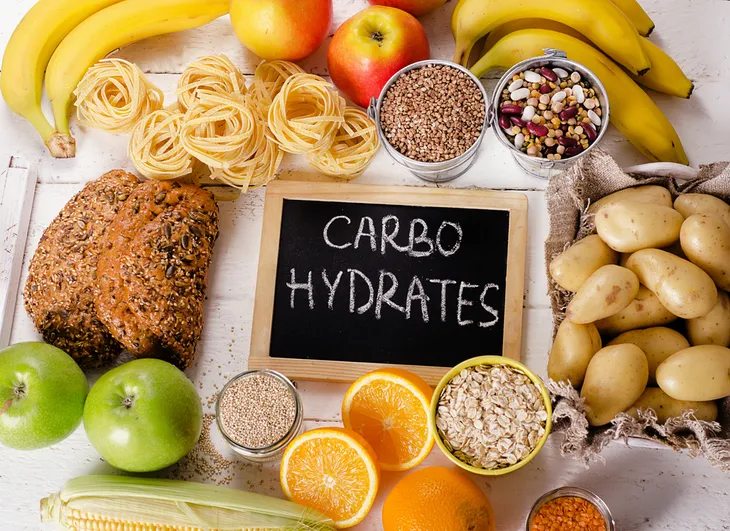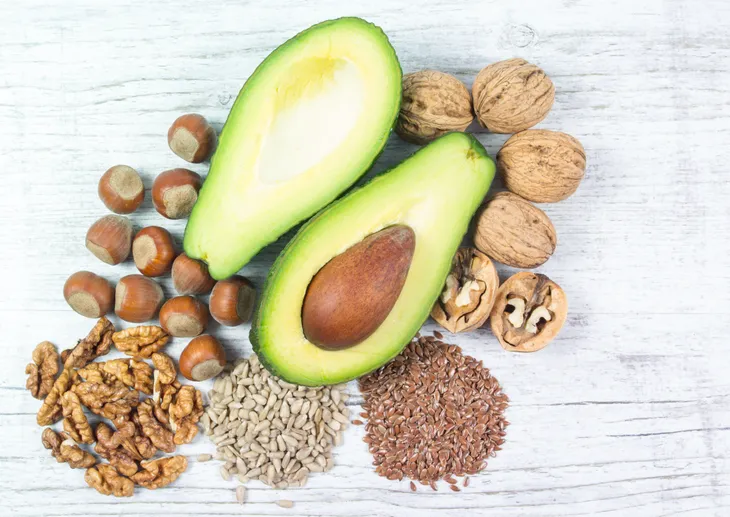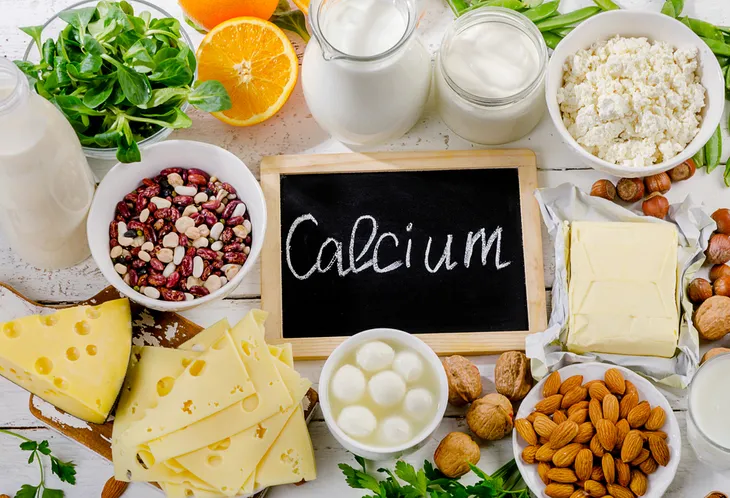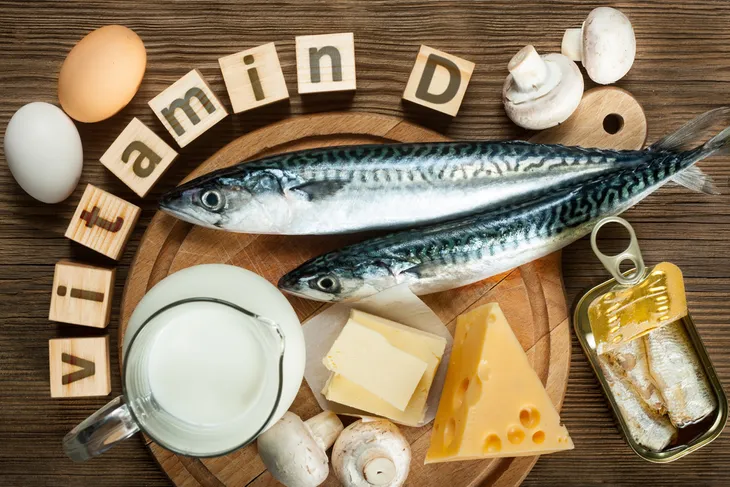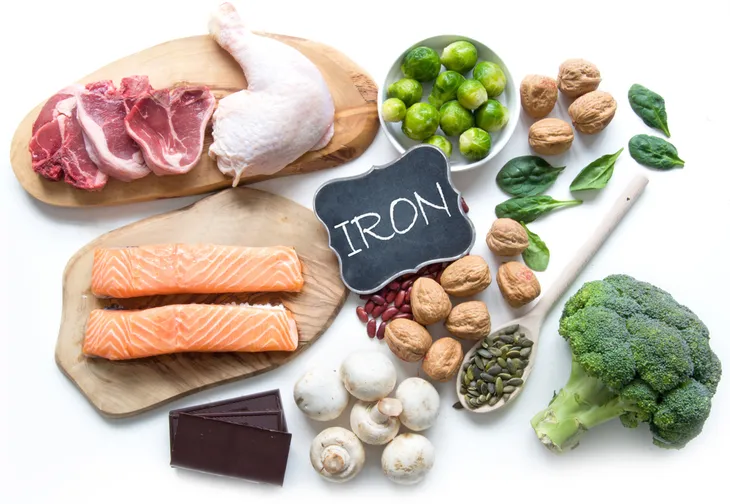We’re constantly bombarded with information about which nutrients we need to be consuming more of, and their benefits for the body. With such busy lives, it can feel overwhelming to try and eat all of the foods required to meet these needs.
So which nutrients are the most important to our overall health? They’re referred to as “essential nutrients” because they’re just that—essential. Not only because the body needs them to perform its day-to-day functions, but also because it can’t produce them its own. Therefore, they must be obtained through food sources or supplements. The following are 13 such essential nutrients and why the body needs them.
Protein
Protein intake is a hot topic right now, and for good reason! Not only is the nutrient essential for the formation of muscles, but Healthline says it also “provides the building blocks of the body… Every cell, from bone to skin to hair, contains protein.”
These building blocks that protein is made up of are called amino acids, of which there are 20 types. And while the body is capable of creating some of them, Dr. Axe indicates, “…nine of these are considered essential amino acids because they can’t be produced by your body,” therefore they must come from a person’s diet. To get an adequate amount, the source suggests eating a variety of protein sources, including “meat, eggs, dairy, nuts and beans.”
Carbohydrates
Carbohydrates get a bad rap. Although they are often “demonized as ‘unhealthy’ or ‘fattening,’” says Dr. Axe, they’re actually essential to the functioning of the body. The source explains that carbohydrates “are broken down into glucose, which is the primary source of fuel for your body and brain.” In addition, Dr. Axe says that they “help stabilize blood sugar levels and preserve muscle mass by preventing the breakdown of proteins for energy.”
Not all carbohydrates are considered equal, however. Be sure to limit your intake of refined carbs—found in baked goods, soda, and white bread and pasta—as LiveStrong indicates they “digest quickly and leave you feeling hungry, so you may overeat and gain weight.” It’s complex carbohydrates that you want to eat, as they take longer to break down, which keep you feeling full for a longer period of time. Examples of complex carbs include whole grains, beans, fruits, and vegetables.
Fat
Dietary fat tends to be negatively associated with unwanted body weight, so people tend to avoid consuming it whenever possible. But like carbohydrates, fat is another source of energy for the body. And, consuming it “increases the absorption of fat-soluble vitamins including vitamins A, D, E and K,” says SFGate.com, so it’s important to ensure you’re getting enough.
But, as with carbohydrates, some types of fat are better for you than others. Unsaturated fats—which can be found in food sources like nuts, seeds, avocado, olive oil, and fish—are what offer the above mentioned benefits. Saturated fats in butter, cheese, and red meat should be consumed on a limited basis. Trans fats, however, should be avoided altogether, as Dr. Axe says they have been shown to “significantly increase the risk of heart disease.”
Vitamins
While there are many different types of vitamins, they all play their own part in the day-to-day functioning of the body, so it’s vital to consume enough of each. There are 13 essential vitamins the body needs, including vitamins A, C, D, E, K, and B vitamins (some of which we’ll discuss in greater detail later on in the article).
Vitamin C, for instance, “is necessary for the synthesis of collagen, which provides structure to blood vessels, bone and ligaments,” says SFGate.com. Whereas vitamin A is important for eye and skin health, and vitamin K is necessary for bone strength and blood clotting. Although this may seem like a lot of vitamins to try and consume on the daily, you should be able to meet your intake requirements simply by eating a balanced diet. For some, however, taking a multivitamin may be necessary (especially those with restrictive diets).
Minerals
In addition to vitamins, minerals are crucial to the body’s overall health and functioning. In general, Healthline indicates they are important for “building strong bones and teeth, regulating your metabolism, and staying properly hydrated.” Included in this list of essential minerals are calcium, sodium, iron, potassium, and magnesium (some of which we’ll discuss further later on). Each mineral plays its own role within the body, however.
For example, sodium “helps to maintain fluid volume outside of the cells and helps cells to function normally,” says SFGate.com. And potassium “maintains fluid volume inside and outside of cells and prevents the excess rise of blood pressure with increased sodium intake.” Although there are supplements available for many of these minerals, they can all be obtained from food as long as you’re eating a balanced diet that contains plenty of fruits and vegetables.
Water
We’re constantly told about the importance of drinking enough water. That’s because it is the most important essential nutrient for the body. Hence why you can survive for weeks without any food, but only a few days without any water. It makes sense, though, given that “About 60 percent of your body weight is water,” says Healthline.
Water is necessary to the function of every system in the body, from brain function to mood. The source also says it “helps flush out toxins, carry nutrients to cells, hydrate the body, and prevent constipation.” In referencing the Institute of Medicine, Everyday Health recommends, “…men consume about 125 ounces of water a day and women 91 ounces per day,” approximately 20 percent of which can come from food sources, and the rest from drinking water.
Calcium
As mentioned earlier, calcium is among the list of essential minerals the body needs in order to function properly. You are likely already aware of its importance to the health of your teeth and bones, but calcium also helps with “muscle contractions, nerve function and the movement of blood throughout the body,” says Dr. Axe.
While dairy products are among the best-known sources of the nutrient, calcium can also be found naturally in leafy greens, white beans, and certain varieties of fish, such as salmon and sardines.
Omega-3 Fatty Acids
As previously discussed, fat is considered to be an essential nutrient for the body. And omega-3 fatty acids are one such type—a polyunsaturated fat, to be precise. As the body is unable to create omega-3s on its own, they must be consumed through dietary sources.
Fish are an especially valuable source, particularly those that are considered ‘fatty,’ such as salmon, sardines, and mackerel. Omega-3s can also be found in plant foods like chia seeds, walnuts, and flax seeds. If you find it challenging to consume enough of these foods on a regular basis, consider taking an omega-3 supplement to boost your intake.
Vitamin D
Vitamin D is often referred to as the ‘sunshine vitamin,’ as it is synthesized in the skin when it’s exposed to sunlight. Getting a sufficient amount of the nutrient is important, as it is crucial for bone health and necessary for the absorption of calcium.
Although a small amount of it can be obtained by eating foods like fish, eggs, and mushrooms, the most important source is sunlight. While the average adult needs about 600 IU of vitamin D each day, this requirement often increases with age, as the body needs more of it to maintain bone health and prevent conditions like osteoporosis.
Iron
Iron is another one of the essential minerals listed earlier. But what makes it so essential? Iron maintains healthy blood by helping to create the red blood cells that carry oxygen throughout the body. Top10HomeRemedies.com says, “It is also necessary to support proper metabolism for muscles and other active organs.”
A deficiency in iron is quite common, especially among women, so it’s important to be aware of which foods are rich sources of the mineral. These include: beans, lentils, nuts, leafy greens, tofu, brown rice, red meats, and oysters.
Zinc
Although not previously mentioned, zinc is another mineral that’s essential to overall health. According to TheHealersJournal.com, it is necessary for “maintaining a sense of smell, keeping a healthy immune system, building proteins, triggering enzymes, and creating DNA.”
Like iron, however, many do not consume an adequate amount of the nutrient. In fact, the source says that up to two billion people are deficient in zinc. To prevent yourself from becoming one of those two billion people, be sure to eat plenty of zinc-rich foods like beans, seeds, nuts, whole grains, and red meat.
Fiber
Although the body can’t digest or absorb fiber, the complex carbohydrate is essential to many of the body’s core functions, including digestive and bowel health, as well as maintaining healthy blood sugar and cholesterol levels. Top10HomeRemedies.com says it also ‘lowers the risk of developing chronic conditions, including heart disease, cancer, and type 2 diabetes.”
While whole grains are considered the best source of fiber, other rich sources of the nutrient include quinoa, barley, and wild rice. In addition, it can also be found in black beans, chickpeas, oats, flaxseed, and a variety of fruits and vegetables.
Magnesium
Another essential mineral, magnesium plays a variety of roles within the body, including the maintenance of bone health and the immune system, and the functioning of the muscles, nerves, and heart. Magnesium also controls how much calcium enters each cell, preventing them from cramping and constricting.
Interestingly, many foods that are good sources of fiber are also rich in magnesium. These include whole grains, legumes, brown rice, beans, nuts, seeds, and green vegetables like spinach and broccoli.


